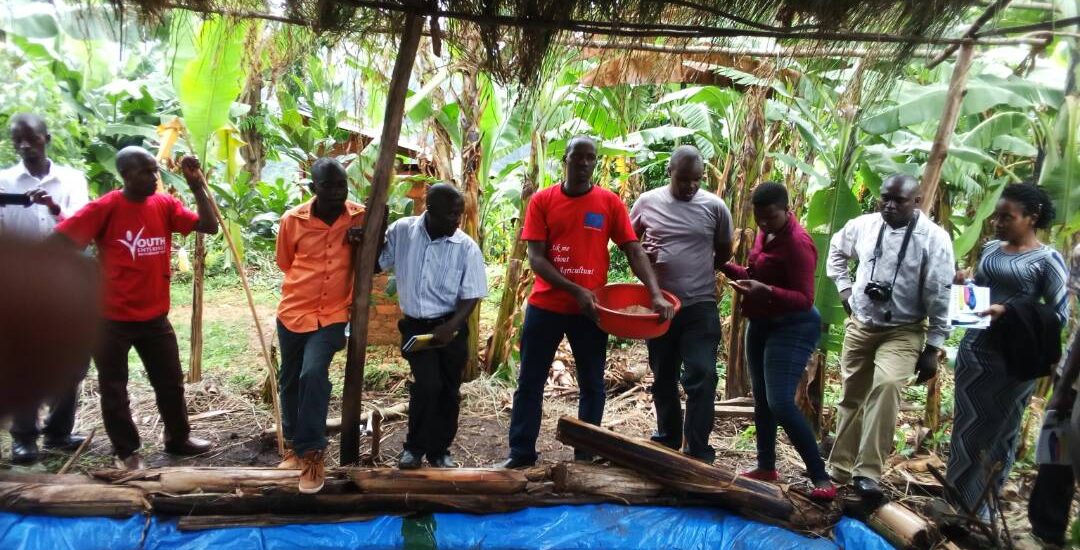Through our work with the Global Resilience Partnership (GRP) we have been working with our partners, Kijabe Environmental Volunteers, (KENVO) to facilitate an exchange programme among youths groups in Uganda and Kenya. This programme enables young farmers from different regions to: swap farming innovations, ideas and knowledge with one another; identify partnership opportunities, share stories and examples of the challenges they face; and collaborate on solutions.
The first step was to convene a “Local Youth Exchange Programme”. This was hosted at the Centre of Excellence (CoE) in Sireet and brought together youth members from the local Nandi Hills region with visiting youths from Kijabe. The Sireet youths were able to interact with youths from Kijabe, who are also involved in farming activities. They shared various farming techniques, advice and knowledge with each other as well as the challenges they face as young farmers. It also also them to interact socially, to form connections and encourage each other to be successful as young farmers.
The Regional Youth Exchange was then held. This entailed youths from Sireet and Kijabe travelling to Uganda to visit Kayonza’ s CoE youth members. This again allowed them to share farming ideas, innovations, and challenges that they face, and find space to identify various farming partnership opportunities amongst themselves. The youths from Kenya were able to witness a wide variety of youth farm enterprises, including the youth-led CoE demonstration-sites. As well as learning about how Kayonza youths are farming fish and keeping poultry, the visitors were also shown how local specialities of banana and pineapple wine were being turned into products that are helping to diversify the incomes of these youth groups in Kayonza.
The Kenyan youths were very encouraged to see this, and spent a lot of their visit coming up with ideas on how they could create value addition for other crops back at home: coming up with plans for products such as banana crisps, and sweet potato flour. They were also excited to see the coffee academy which acts as a youth-led coffee farm training centre giving visitors insights into coffee growing practices such as weed control through mulching, coffee variety selection, the holing process and the coffee planting calendar.
During the visit, as the Kenyan and Ugandan youth groups exchanged their thoughts and insights, it became apparent that challenges such as lack of loan facilities, market linkages and climatic variations, were universal across all the regions. This enabled them to brainstorm a few ideas on how they might be able to address these challenges together. Out of this arose a plethora of ideas: such as developing a youth-group savings culture that would enable the youth-members to borrow and lend back money to members; a stakeholder forum that would enable youth groups to identify partnership opportunities and markets for their enterprises; and, lastly, a training needs assessment that would enable them to identify enterprises which they can share between them, and identify specific farming skills that are lacking or needed within the network.
In a context where young people are increasingly leaving the rural areas to travel to the city, finding ways in which to engage young people to stay involved in rural communities is vital. This programme has already seen some great results and it is exciting to see the innovative ideas young people come up with. We will follow their progress closely to see what comes out of these exchanges.

